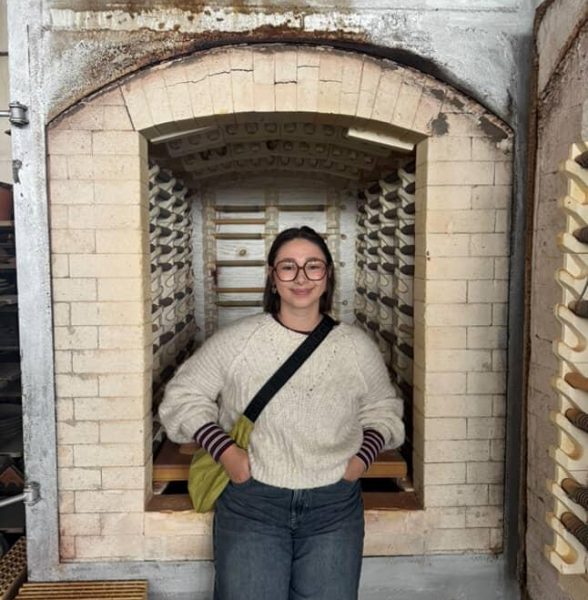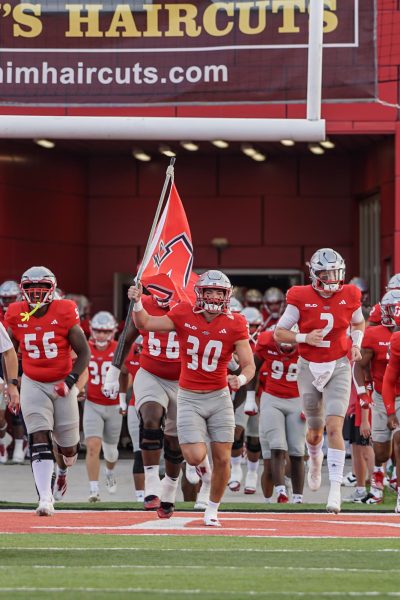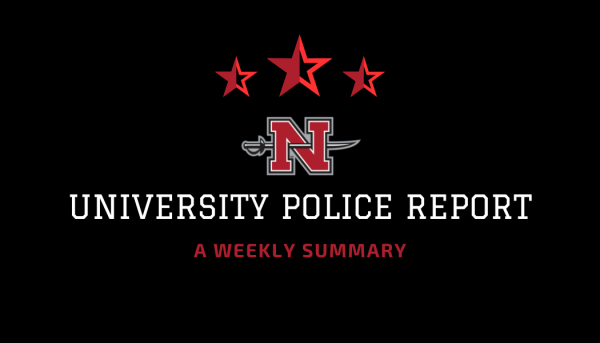Quality Enhancement Plan may bring advising changes
The Quality Enhancement Plan (QEP) may bring changes to the advising process at Nicholls.
The QEP will help Nicholls focus on improving the student advising and mentoring experience.
The Southern Association of Colleges and Schools Commission on Colleges (SACSCOC) assesses Nicholls every 10 years to see how the University performed since their last visit by checking different areas such as finance, curriculum and graduation rates.
Ross Jahnke, art professor and QEP Committee chair, explained what the QEP is and how it will affect Nicholls.
“SACSCOC does two things,” Jahnke said. “They review the last 10 years of operations to make sure the University meets their standards, and they ask us to develop a QEP.”
The QEP is a project that SACSCOC requires the University to work and report on for at least the next five years.
According to Jahnke, the QEP is designed to improve two things: student-learning outcomes and the student-learning environment.
Jahnke said that improving student-learning outcomes is more significant than simply improving the environment.
“Student learning outcomes are more important,” Jahnke said. “If we just improve the environment, that’s not enough. If we beautify the campus or make an even nicer cafeteria, that really doesn’t count. The QEP has to improve the quality of education.”
“We’ve been working all semester to identify a topic, and the topic became clear around mid-semester thanks in large part to what we did at the Faculty Institute in the fall,” Jahnke said.
In an activity at the fall Faculty Institute, advising and mentoring received the most red marks from the faculty out of all other possible topics.
After conducting many surveys of students, faculty and alumni, the committee chose to focus on the topic of Student Advising and Mentoring (SAM) for this year’s QEP.
SAM consists of six goals: raise the priority of advising and mentoring, improve the quality of advising and mentoring, create seamless transitions, improve course availability, strengthen training and compensation for advisors and improve student ownership.
Jahnke said that the committee has been researching since the end of last fall semester and putting together a “white paper,” or a proposal of the goals and what they would like to do to achieve those goals.
“It’s sort of a wish list of things we would like to do,” Jahnke said. “It’s something we’re still working on. There is still room for input, and we got a lot of input at the spring Faculty Institute.”
One of the goals is to improve student ownership, and the QEP is supposed to help make students active partners in the advising process.
Meeting with advisers does not always take top priority for some students.
Graduate student Holly Portier said she met with her adviser in University College freshmen year and then waited until her senior year to meet again, only to make sure she would graduate on time.
“I would let my friends advise me,” Portier said. She relied on her sorority sisters with the same major, allied health, to tell her which classes to take.
A lack of a relationship with advisers isn’t always the norm, though, especially in the department of education.
Lani Detiveaux, a graduate student in higher education, said that she had very good relationships with her advisors, and would go to them with any questions.
In the education department, students are required to meet with their advisors before they can schedule any education classes.
Emma Kennedy, an elementary education freshman from Houma, said that she enjoyed meeting with her advisor in University College last semester.
“It was so easy, and we were laughing with each other,” Kennedy said.
Still, other freshmen like Megan Thiberville, an elementary education student from Slidell, felt like the advising process was a bit rushed.
“I met with my advisor for scheduling and it seemed really rushed,” Thiberville said. “I guess they had a lot of people that needed to go through.”
SAM outlines all of the goals and lists many possible solutions to current problems.
Jahnke pointed out that the solutions are also “wish list items,” but there is a long list of possible improvements for the advising program.
Some of the more expensive improvements, like purchasing software to predict course needs such as Degree Works, or creating a new position under the vice president of Academic Affairs to oversee advising, will depend on the University’s budget and the possible budget cuts.
In addition to fixes on the faculty and administrative side, students will also have to take steps to become more proactive in the advising process.
“Review of literature shows that advising should be treated as important as any class,” Jahnke said.
“It’s not just about scheduling. We need to improve the quality of advising on campus.”






